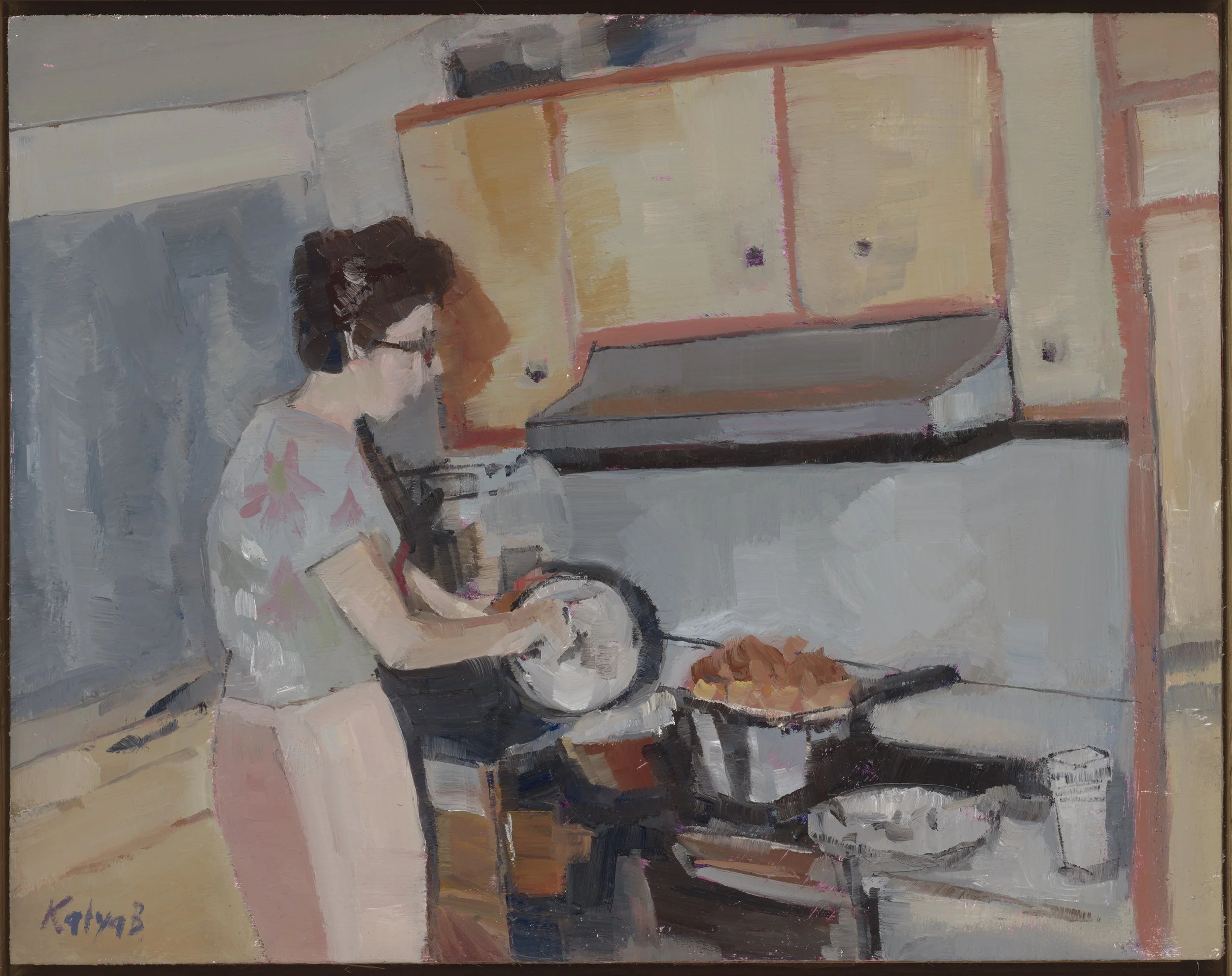Housewife Art and Thoughts
I’m working on a few different themes, including the series of images I call “American housewife”. In this entry, I’m trying to organize my thoughts that fuel and inspire this project.
I once had a job that took me deep into the archives of Life magazine, where I eventually reviewed every issue ever published. It was a journey through time, witnessing the evolution of advertising firsthand. While some aspects were changing with the decades passing, certain themes remained constant and began to grate on my nerves. The most striking was the overwhelming number of advertisements for household products aimed at women, depicting them as endlessly delighted with their new appliances, household cleaners, and other consumer goods. These images, portraying women as the primary audience and consumers, stayed with me for years, fueling my reflections on consumer culture and gender roles. My imaginary housewife paintings are a manifestation of my frustration with these ads and my broader thoughts on these societal issues.
Growing up in the Soviet Union, the role of women was markedly different from the North American model. Every woman I knew had a full-time job, including my mother, an engineer who often travelled for months at a time. Domestic chores were tackled on weekends with me and my dad pitching in, or deferred until later. Family dinners were frequently prepared in advance, and no one ever complained. If I needed anything cleaned, prepared, or ready for school in the morning, I took care of it myself. All my friends were in similar situations with their busy parents, and we enjoyed our freedom more than feeling deprived or lacking attention. It was always clear to me that I needed to be self-reliant before starting my own family.
Another foreign aspect of these ads was the scarcity of consumer goods in the Soviet Union. A few government-owned domestic brands produced everything necessary for day-to-day life, eliminating the need for competition and advertising. If you needed a vacuum, you’d buy the one in the closest store to your home, and your neighbor would probably have the same one. With so many things being scarce, no one took the time to discuss the advantages of one product over another. As my father-in-law used to say: "A good product doesn’t need to be advertised." Years later, I remember feeling completely baffled when I encountered a woman in a grocery store who wanted to chat about detergent brands. I had no idea it could be a conversation topic. Jokes aside, it was a cultural shock for me. To this day, I still buy the cheapest detergent.
When I look at these images of American housewives, I imagine an entirely different reality: apple pie, thoughtful home decor, my mother always available, tirelessly providing for me while addressing me only as "sweetie" or "baby." What would I have grown up like? Usually, my fantasy doesn’t go much further, as all possible scenarios start to feel like a horror movie. I end up feeling grateful and content for being raised by two ambitious working parents who did their best, as all parents strive to do.




